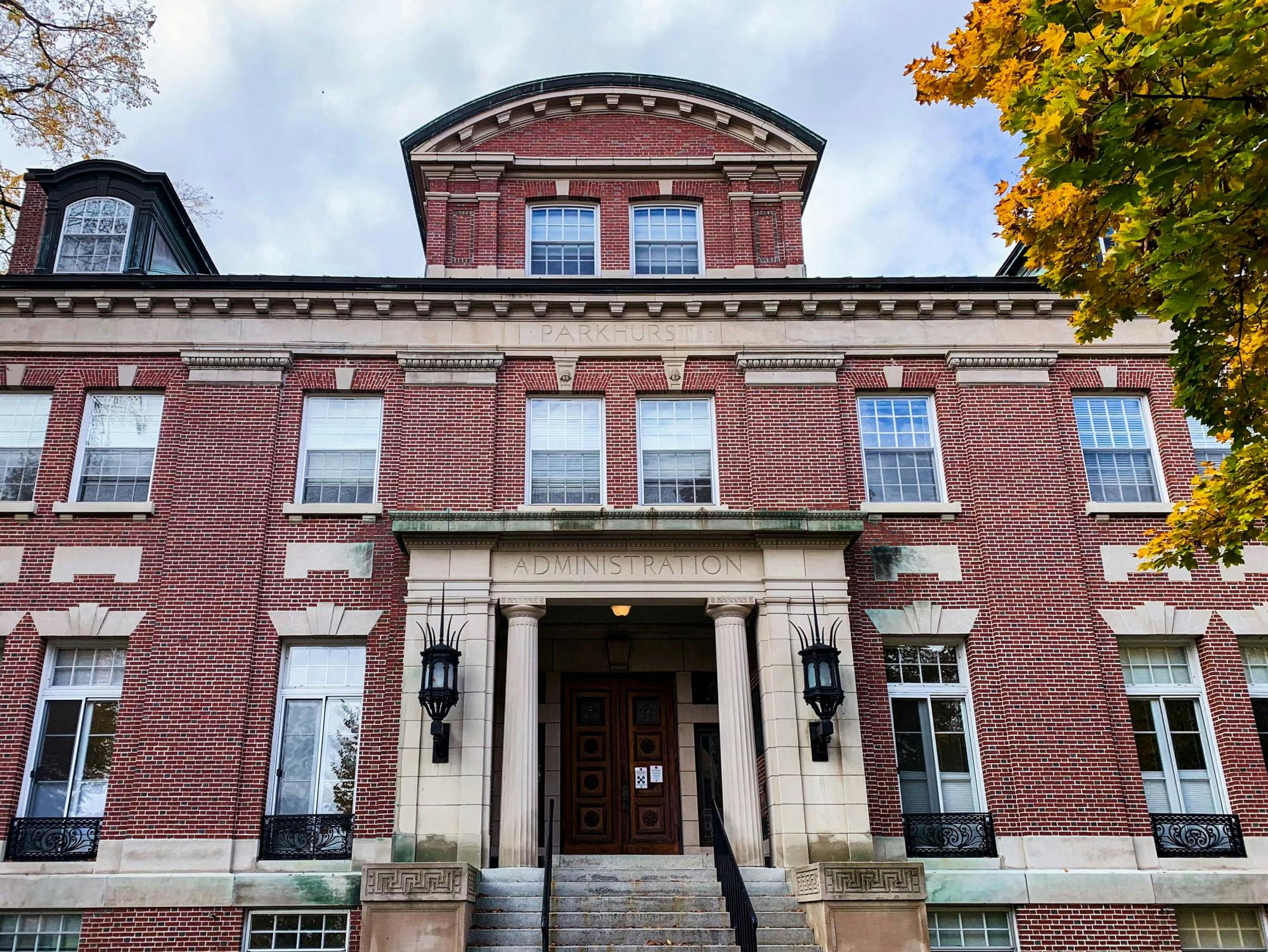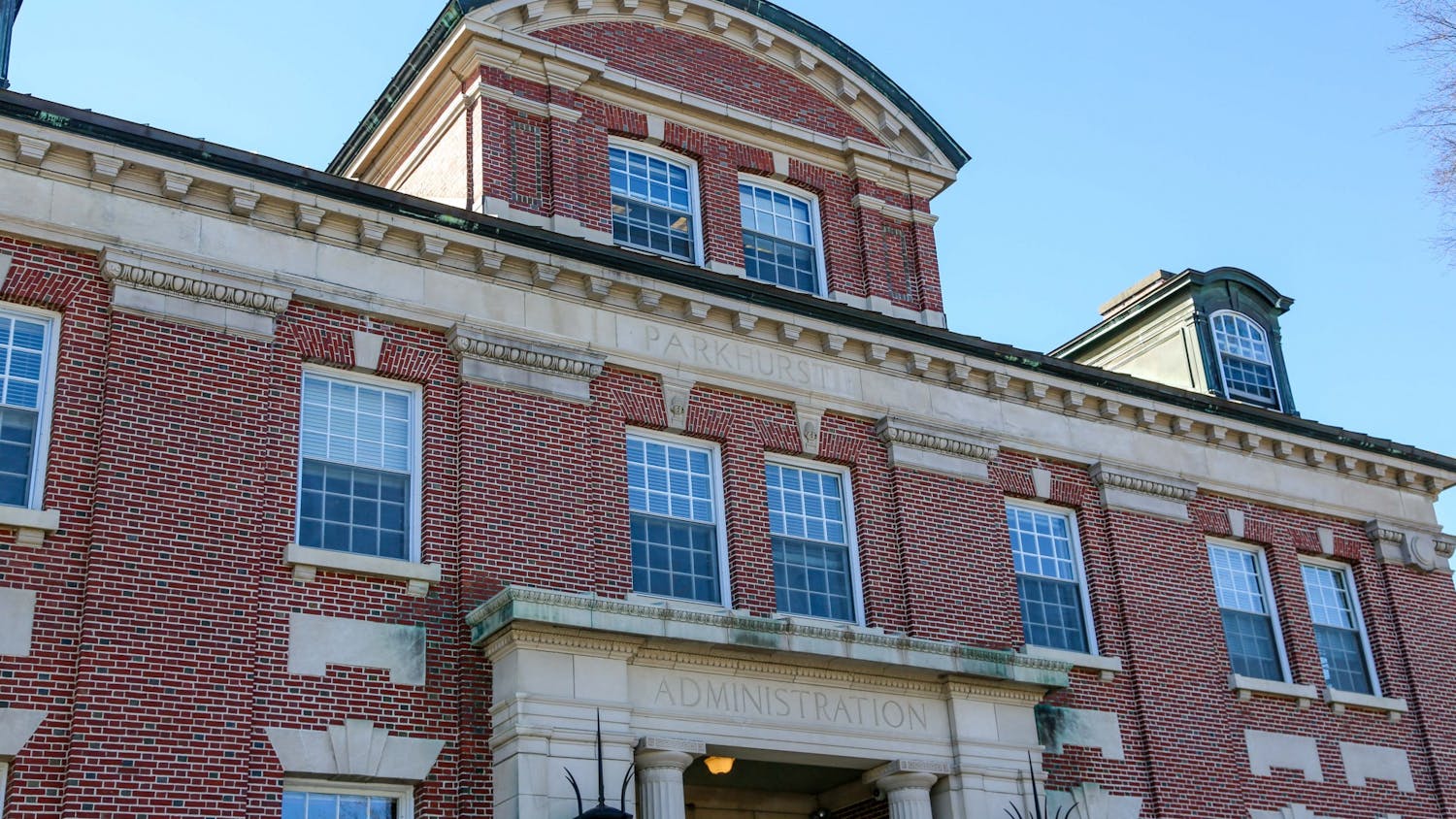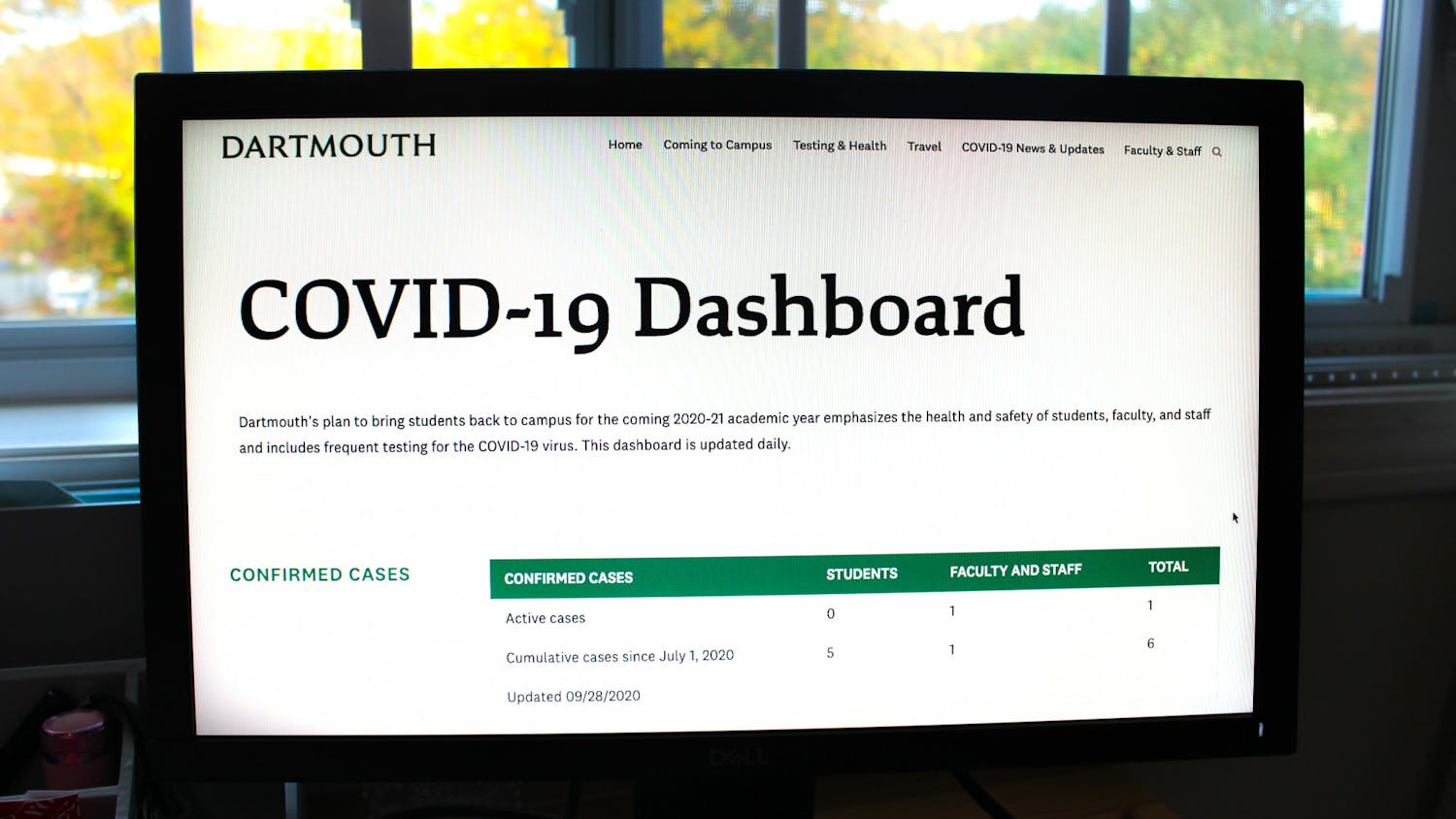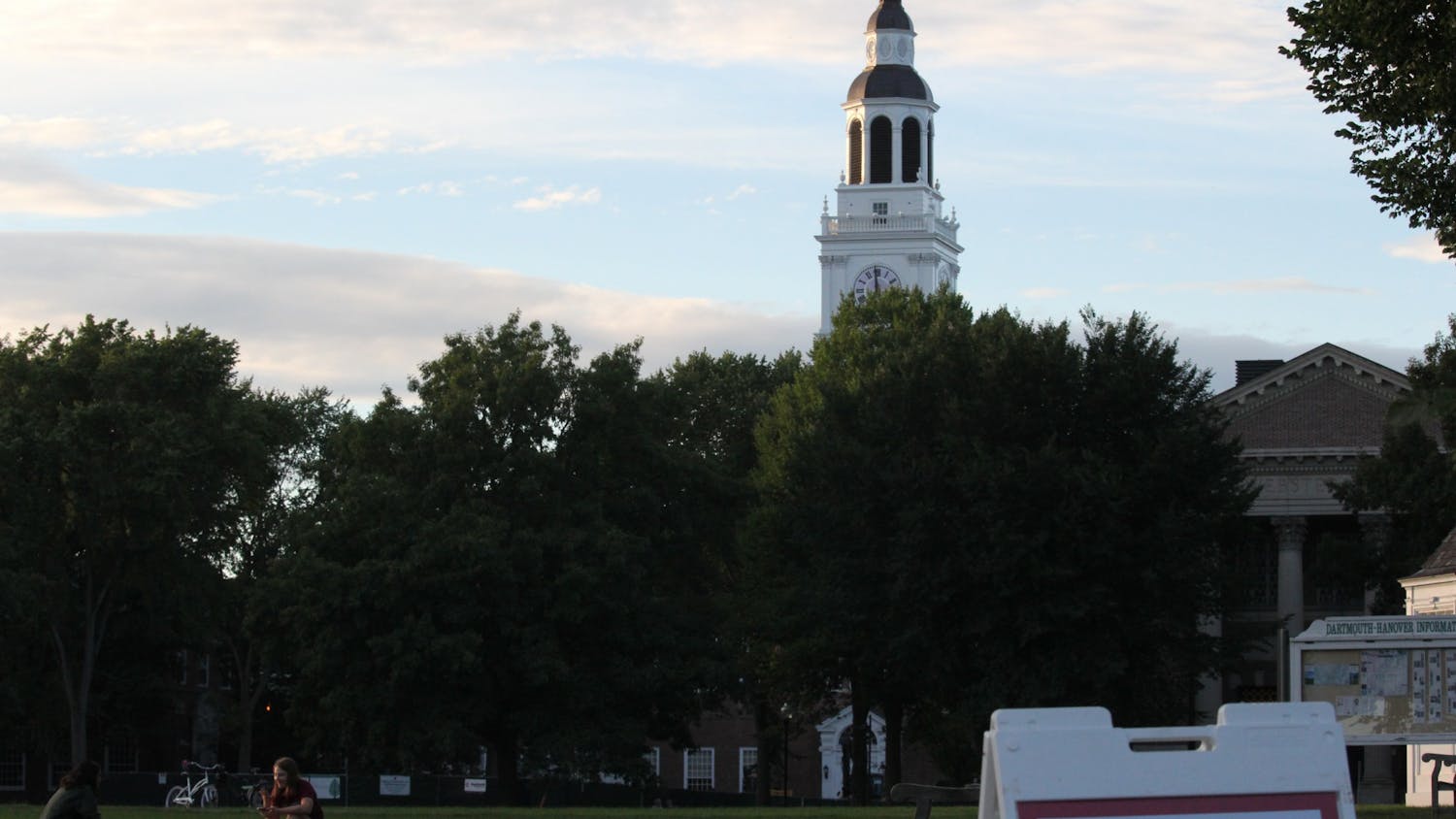As rumors continue to circulate surrounding students who have been sent home for violating the College’s COVID-19 policies, multiple members of the College’s administration have cited privacy concerns as the rationale behind Dartmouth’s refusal to release the number of students impacted. Many on campus have criticized the College for a lack of transparency.
Some community members have specifically questioned the College’s explanation for withholding these numbers, citing the fact that other data — including both the number of students who have contracted COVID-19 and the number of students subject to general disciplinary action — are routinely reported.
In Provost Joseph Helble’s Oct. 14 “Community Conversations” live stream, vice president for communications Justin Anderson said that “Dartmouth has never announced when students are asked to leave campus, and that number is not quantified at the end of the term or the end of the year.”
In a previous interview with The Dartmouth, Dean of the College Kathryn Lively noted that the College does not usually release information about academic separation or suspension for medical withdrawal or behavioral reasons, adding that the current policy for violations related to COVID-19 is consistent with this precedent.
Meanwhile, Dartmouth’s Community Standards Office publishes a yearly report on student conduct that includes information on disciplinary measures and student suspensions, including the number of students — 21 in the 2018-2019 academic year — suspended for violations of the Academic Honor Principle. Past reports, though none since 2015, have also included a tally of total suspensions.
Lively, however, said in an interview that the numbers in this annual report are not released in “real time.”
“We don't say ‘three people were sent home on academic violations this week.’ And that's what people seem to want here,” Lively said.
In the future, Lively said, the College may consider releasing the tally of students asked to leave campus, though that decision has not been made yet.
“We might choose, maybe at the end of the year, to release the numbers the way that we would in an annual report,” Lively said. “But at the moment, that is not the College's decision. The provost has been very clear about that.”
According to Lively, at the beginning of the term, some students who were sent home were “easily identified” and were “bullied online and targeted by members of the community.” She said that an annual report like CSO’s, as opposed to real time reporting, makes it “harder for people trying to track you down.”
Lively also said that more students have left on their own terms than have been asked to leave by the College, deciding they would rather not live on campus after finding the College’s COVID-19 guidelines “too isolating or too stringent.”
“That makes things confusing, too, if we then released that number, and then people start pointing fingers trying to figure things out,” Lively said.
Lively added that violations of Dartmouth’s “Community Expectations” contrast with violations included in CSO’s report because they are not “behavioral” infractions. According to Lively, removal from campus for Community Expectations violations is not a disciplinary measure but rather is considered a “revocation of privilege.”
According to an email statement from CSO’s director Katharine Strong, the office’s 2019-2020 academic year report will be published this winter and will include information on student conduct infractions through June of this year, the standard timeframe for these reports. Strong added that Dartmouth’s Community Expectations falls outside of the office’s domain. COVID-19-related infractions are handled by the Dean of the College, as outlined in an addendum to the Community Expectations.
The Office of General Counsel declined to comment, directing questions to the Office of Communications. According to College spokesperson Diana Lawrence, the College “does not typically announce any details of student conduct outcomes.”
“Anyone concerned about the health and safety of our community can refer to the information posted publicly on the COVID-19 dashboard, which is updated daily with virus testing results and other important details,” Lawrence wrote in an email statement.
Paul Hager ’22, who personally emailed Lively requesting that Dartmouth “keep students informed” of the number of students sent home due to COVID-19-related violations, said that he sees a contradiction in how the College shares information on case counts via its COVID-19 dashboard versus how it handles information on students sent home.
“[The College] is saying if we release any number [on student removals], we can't prevent it from being identifying and prevent this massive search for who those people are,” Hager said. “To me, that seems really contradictory.”
He also noted that he thinks access to this data, particularly if it shows a high rate of student removal, could inform both conversations around the College’s enforcement strategy, as well as students’ personal decisions on D-Plans or whether to be on campus in the first place.
Hager called not releasing this data a “disservice” both to those who see Dartmouth’s rules as “too strict” and to those who believe Dartmouth isn’t doing enough.
“I think the world, the Upper Valley, the town are all watching to see how colleges — and as part of that Dartmouth — do as they attempt to reopen amidst the pandemic.” Hager said. “And so I think not to divulge the number of removals that happen is also hiding information.”
Lively said that while she sees the data offered by the COVID-19 dashboard as “relevant to a much broader swath of the Dartmouth community,” information on the number of students asked to leave campus is “just different.”
“I'm really at a loss as to why students and parents are so curious about how many people there have been whose privileges have been revoked,” Lively said.
In the Oct. 14 “Community Conversations,” Anderson said there was a “balance” that the College needed to strike between transparency and privacy, and added that in the case of the number of students asked to leave campus, “privacy wins the day.”
Computer science professor David Kotz ’86, who serves as a faculty affiliate at Dartmouth’s Institute for Security, Technology and Society, commented in an interview on this tradeoff between transparency and privacy.
“There's value in transparency, there's also value in privacy, and you want to weigh the individual right to privacy against the broader societal interest in transparency,” Kotz said.





